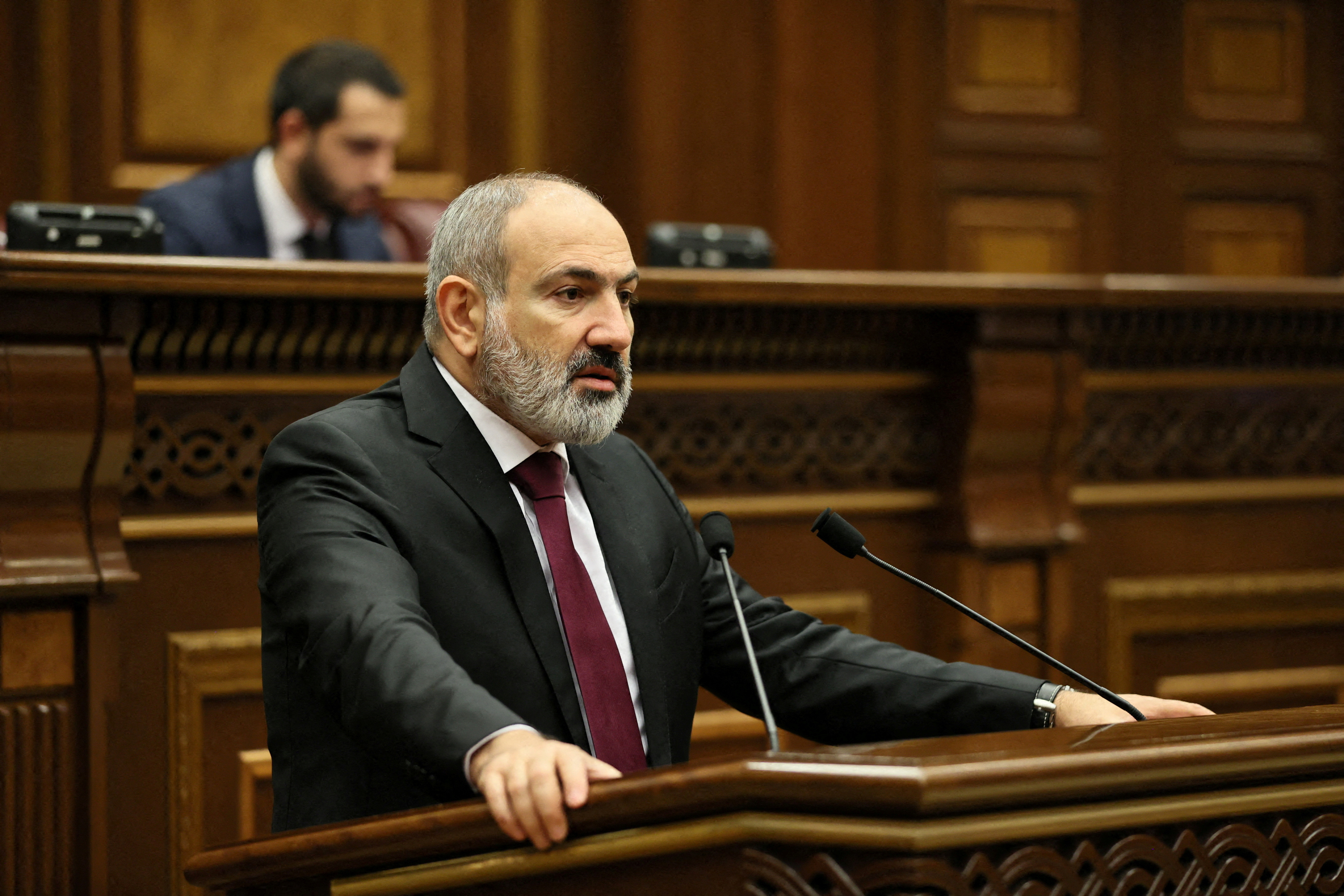
Armenian Prime Minister Nikol Pashinyan addresses parliament following an escalation in hostilities over the Nagorno-Karabakh region along the border of Armenia with Azerbaijan, in Yerevan, Armenia, September 13, 2022. Tigran Mehrabyan/PAN Photo via REUTERS /File Photo Acquire Licensing Rights
YEREVAN, Sept 20 (Reuters) – Here are some key facts about Armenian Prime Minister Nikol Pashinyan, who finds himself at the centre of a new crisis after Azerbaijan launched an offensive this week in the breakaway Armenian-populated territory of Nagorno-Karabakh.
– Pashinyan, 48, is a former journalist who became prime minister after a wave of street protests, sometimes referred to as Armenia’s Velvet Revolution, toppled his predecessor in 2018. On taking power, he promised to revamp the economy and fight corruption, earning strong popular support.
– Pashinyan came under heavy domestic pressure in 2020 after agreeing to a Russian-brokered ceasefire that ended a 44-day war between ethnic Armenian and Azerbaijani forces over Nagorno-Karabakh. Azerbaijan scored a comprehensive victory, recapturing a third of the breakaway territory as well as seven surrounding districts. Pashinyan faced calls to resign, as angry crowds protested in the capital Yerevan.
– Pashinyan has engaged in successive rounds of talks with Azerbaijani President Ilham Aliyev in search of a peace agreement between two countries. Earlier this year he made an important shift by recognising that Nagorno-Karabakh was part of Azerbaijan, thereby giving up any claim on it by Yerevan. But Azerbaijan rejected his demand for it to agree to protect the rights and security of Karabakh Armenians.
– Pashinyan’s relations with his main ally, Russia, have sharply worsened in recent months. He said that Moscow had not fulfilled its duties as a peacekeeper in Nagorno-Karabakh and took a series of steps that angered Russia. These included Armenia’s moves towards membership of the International Criminal Court – which has accused President Vladimir Putin of war crimes in Ukraine – and its hosting of a peacekeeping exercise with U.S. soldiers this month.
– Pashinyan said in an address to the nation on Tuesday that Azerbaijan’s new offensive in Karabakh was the start of “a specific operation of ethnic cleansing” and that Armenia would resist what he called attempts to draw it into a military escalation.
– Pashinyan is likely to come under fierce domestic pressure again if Azerbaijan takes back control of Nagorno-Karabakh. In his speech on Tuesday, he said that “calls for a coup d’etat are already being heard”, but did not present any evidence of an attempt to remove him.
Writing by Mark Trevelyan, Editing by William Maclean
Our Standards: The Thomson Reuters Trust Principles.
